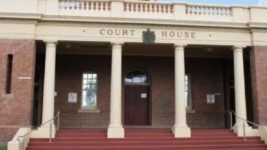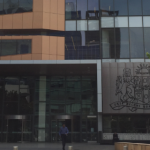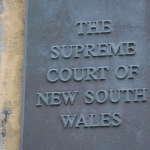What Will a Court Consider When Determining Bail in NSW?

The man accused of causing the deaths of several passengers after the bus he was driving overturned in the Hunter Valley last Sunday night has been granted strict conditional bail.
58-year old Brett Button from Maitland in the Hunter Region was driving 36 passengers back to their accommodation in Singleton when the bus lost balance on a roundabout near the Hunter Expressway off-ramp at Greta at around 11.30pm on 11 June 2023 and fell sideways, killing 10 passengers and injuring more than 20 more – two of whom remain in a serious condition.
Mr Button was charged with 10 counts of dangerous driving occasioning death, as well as driving in a dangerous manner and negligent driving occasioning death, and was refused bai by officers at Cessnock Police Station.
His legal representative applied for his release on bail in Cessnock Local Court yesterday morning.
The application was opposed by the police prosecutor due to the seriousness of the charges and alleged strength of the prosecution case.
However, Magistrate Robyn Richardson was saw fit to grant bail on strict conditions given, among other considerations, Mr Button’s prior good character, his links to the local community, the likely duration of the proceedings and the clear suffering the defendant is going through.
Her Honour stated:
“It is clear to this court he [Mr Button] suffers along with the rest of the community … I see before me a man suffering”, adding “bail should not be denied as a punishment.”
Mr Button is required to report to police on a regular basis, to abide by a curfew and his driver licence has been suspended by police.
The Cessnock community as well as the wider Hunter Region has been shaken by the incident, but has at the same time come together to support those directly impacted.
Mr Button is scheduled to return to court in August.
Bail in New South Wales
After a person is arrested, taken into custody and charged with a criminal offence, police will need to decide whether to release him or her from custody on a commitment to attend court at a specific time, date and place.
This promise is known as ‘bail’.
If police refuse to release the person on bail, they will need to bring him or her before a court as soon as practicable where an application for bail – now known as a ‘release application’ can be made.
‘Show cause’ offences
For certain serious offences and situations, the person applying for bail will need to firstly ‘show cause’ as to why his or her detention is not justified; and overcoming this show cause test is something best left in the hands of experienced bail lawyers.
‘Unacceptable risk’ test
For all offences, a test known as the ‘unacceptable risk test’ is applied, whereby the court is required to determine whether any ‘bail concerns’ are not able to be overcome by bail conditions.
The bail concerns relevant to a determination of bail are any concern that the person applying for bail will, if released:
- Fail to appear in court,
- Commit a serious offence,
- Endanger the safety of any person or the community, or
- Interfere with witnesses or evidence.
Matters taken into account when determining bail
When assessing bail concerns for the purpose of granting or refusing bail, a court is permitted to consider the following matters:
- The defendant’s background, including criminal history, and community ties,
- The nature and seriousness of the alleged offence/s,
- The strength of the prosecution case,
- Whether the defendant has a history of violence,
- Whether the defendant has previously committed a serious offence while on bail,
- Whether the defendant has previously complied with orders such as bail conditions, parole conditions, apprehended violence orders, good behaviour bonds, community service orders, conditional release orders and supervision orders,
- Any warnings by police or other bail authorities that the defendant has failed or was about to fail to comply with a matter that is relevant to a bail concern,
- Whether the defendant has criminal associations,
- The length of time the defendant is likely to spend in custody if bail is refused,
- The likelihood of a custodial sentence if the defendant is convicted,
- Where the defendant has been convicted and the matter has been set down for sentencing proceedings, the likelihood of a custodial sentence being imposed,
- Where the defendant has been convicted and sentenced, and an appeal has been filed, whether that appeal has a reasonably arguable prospect of success,
- Any special vulnerability or needs of the defendant including due to his or her youth, being a First Nations person, or having a cognitive or mental health impairment,
- The defendant’s need to be free to prepare for his or her appearance in court or to obtain legal advice,
- The defendant’s need to be free for any other lawful reason,
- The defendant’s conduct towards the victim/s, or any family member/s or the victim/s, after the alleged offence/s,
- In the case of a serious offence, the views of any victim/s, or any family member/s of the victim/s, to the extent this is relevant to a concern that the defendant may endanger the safety of a victim/s, individuals or the community,
- The bail conditions that are available to address any bail concerns,
- Whether the defendant has associations with a terrorist organisation/s,
- Whether the defendant has made statements or carried out activities advocating support for terrorist acts or violent extremism,
- Whether the defendant has associations or affiliation with any person/s or group/s advocating support for terrorist acts or violent extremism,
- Whether the alleged offence is considered to be a serious offence due to, among any other relevant things, its sexual or violent nature, or the fact it involves an offence weapon or instrument, or has a likely affect on any victim/s and the general community, or the alleged offences are numerous.
Mr Button
It is clear that several factors weigh heavily in his favour including his lack of a criminal history (and therefore any breach of an order), his strong ties to the local community, the likely length of time a case involving so many alleged victims and considerable investigations will take to go through the courts, the fact it could not be considered a crime of violence, his need to be free to prepare his case and the lack of any evidence of associations or other concerns listed, despite the seriousness of the allegations.
It should also be noted that proving the offence of dangerous driving can be difficult for the prosecution in circumstances where Mr Button tested negative to both alcohol and drugs, and legal defences including specific statutory defences as well as general legal defences will be available to him.
That said, there is an argument that the prosecution case for the offence of dangerous driving is not as strong as many might think despite the catastophic consequences of the incident, and it is hoped Mr Button does not simply plead guilty to an incorrect criminal offence out of guilt and remorse in order to punish himself and try to make up for what he feels he is responsible for.
Indeed, if the evidence does ultimately establish some form of criminal liability, there are many offences that are far less serious than dangerous driving occasioning death that may be more appropriate.
The decision regarding bail
A court must refuse bail if, after considering the above matters, there remains an unacceptable risk of one or more of the previously-listed bail concerns.
If there are no such unacceptable risks, a court must grant bail (with or without conditions), release the applicant without bail or dispense with the requirement for bail altogether.
Need a lawyer for a bail application?
If your friend or loved-one is going to court for a bail application, or if you are concerned you may be arrested and refused bail at the police station, call Sydney Criminal Lawyers anytime for accurate advice and exceptional representation by criminal defence lawyers with vast specialist experience in all aspects of bail, and who regularly achieve bail in extremely serious and complex criminal cases.
Our lawyers represent clients throughout New South Wales, including in the Sydney Metropolitan Area, Wollongong, Newcastle and on the weekend in Parramatta Bails Court.
Fixed fees are available for bail applications across the state.





